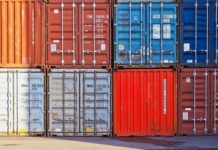by Mahmud Tim Kargbo
14th September 2021
It’s a well-established fact that the government of Sierra Leone understands that trade contributes directly to poverty reduction by opening up new employment opportunities; for example, for agricultural producers, expanding export sectors and bringing about structural changes in the economy that increase employment of low-skilled, poor workers in the informal sector.
Years of modern days experience continue to teach us that the impact of trade on the economic development of a country goes beyond government, as trade normally accounts for more than 50% of a country’s Gross Domestic Product. In short, traders are expected to collaborate with the government in enhancing the development of a country.
In Sierra Leone, the role of these very exploitative importers cartel has always been the opposite when it comes to helping the government to achieve its social contract mandate with its people. This is especially true in the area of creating the conducive atmosphere for the bread and butter of the suffering majority that formed the bulk of the country’s population and who are prone to blackmailing tactics.
One significant area of concern is the lack of employment creation in the informal sector that has no finance or skills to attract lending from the financial system to import these commodities. The government of Sierra Leone, in its part, has always provided incentives to these importers to cushion the effect of financing the informal sector. Hence, the role of the importers should have been very clear to support the government in providing necessities of life for the suffering majority. However, the well-established importers’ cartel is well determined to ensure government do not realise its mandate by inflating the prices of essential commodities, thereby creating unnecessary pressure between the line Ministry or the government as a whole and the general public.
One vivid example of this cartel extorting government for their personal benefits was concerning the government of Sierra Leone effort to stabilise prices during the early days of the covid-19 pandemic, in which the government granted the sum of Fifty Million United States Dollars ( $ 50,000,000) soft loans to these very exploitative importers cartel at 7% annualised for them to cushion the effect on its citizens, the result was over profiteering by this cartel which adds excessive suffering in the lives of the already suffering majority, thereby leading WFP and other UN agencies to describe Sierra Leone as one of the worst country’s sufferings from hunger, hence this cartel keeps making the government an easy target to blackmail.
Another exploitative move by this cartel over the years to date is the request for government waivers in order for them to have ease of business and help government realise its goals to provide bread and butter for all its national. Notwithstanding that, this exploitative cartel has led the government to lose millions of dollars on these waivers without corresponding impact of price reductions on these commodities for the suffering majority whom the government is determined to make their lives comfortable.
Losing millions of dollars in waivers, which the government could have used to develop other sectors, clearly shows that this cartel is ripping the government of its much-needed revenue for economic development. As a result of these revenues the government is losing from this very exploitative importers cartel, the government of Sierra Leone is now left with no choice, but constantly seeking loans or debt financing for its operations, hence an increase in the borrowing cost for the government.
In conclusion, the dilemma faced with the government is the lack of ability to curb this exploitative importers cartel without opening a pandora box that will inflame the problem with blackmailing tactics targeting the voting majority who are poor and vulnerable and can hardly afford a meal per day because of the exploitative actions of the importers’ cartel. This has led the government to always be at a knife-edge with this cartel, and hence the exploitative importers’ cartel members are the leading agents for regime change in the country.

